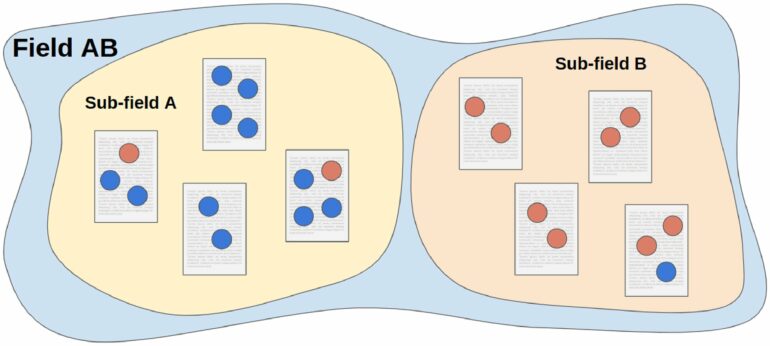Researchers are more likely to pen scientific papers with co-authors of the same gender, a pattern that cannot be simply explained by the varying gender representation across scientific disciplines and time, according to joint research from Cornell and the University of Washington.
Mining a digital corpus of 560,000 published research articles over a 50-year period, the research team observed consistent gender homophily—the tendency of authors to collaborate with others who share their gender. While this observation by itself is not new, the researchers went further, using novel methods to rule out seemingly logical explanations—like a field’s gender balance, say, or a field’s authorship norms for writing research papers.
The team’s findings suggest a behavioral component is in play when scientists seek out collaborators.
“One might posit that the gender homophily observed when considering a broad scientific landscape may be due to varying levels of gender representation,” said Y. Samuel Wang, assistant professor of statistics and data science and author of “Gender-Based Homophily in Collaborations Across a Heterogeneous Scholarly Landscape,” which was published in PLOS One. “However, our findings suggest that something beyond that is going on.”
Comprising scholars in statistics, information science, biology and philosophy, the team mined a massive corpus of articles published between 1960 and 2011 from the online repository JSTOR. To help link genders to more than 800,000 author names, the team relied on social security records and crowdsourced data. Because of the limitations in the data set, this research was limited to men and women authors and didn’t factor in nonbinary identities, researchers said.
From there, the team grouped authors from the same fields and eras, creating 50,000 hypothetical reconfigurations of authors.
“We re-simulated hypothetical datasets. Our thinking was: How different is what we actually observed versus these hypothetical scenarios that we constructed?” Wang said. “Very different, it turns out. This suggests that some other source of homophily is occurring in the data we observed.”
As to why researchers tend to collaborate with those of the same gender, Wang and his team can’t say definitively. Data science methods can’t measure intent—why collaborators choose who they choose, but the team’s findings suggest that consideration of gender may be a factor, Wang said.
More information:
Y. Samuel Wang et al, Gender-based homophily in collaborations across a heterogeneous scholarly landscape, PLOS ONE (2023). DOI: 10.1371/journal.pone.0283106
Provided by
Cornell University
Citation:
Researchers prefer same-gender co-authors, study confirms (2023, August 2)



